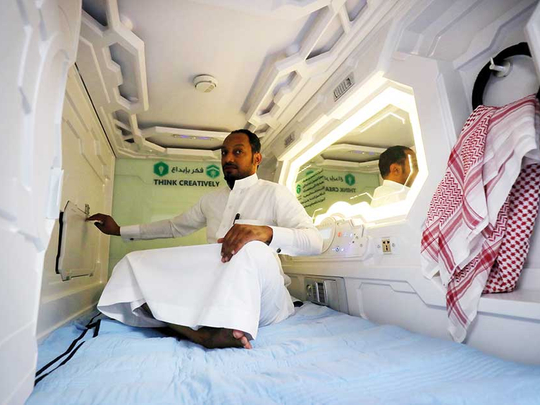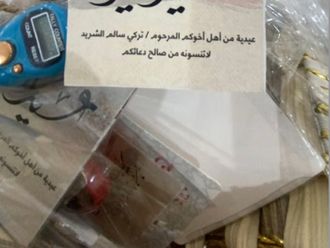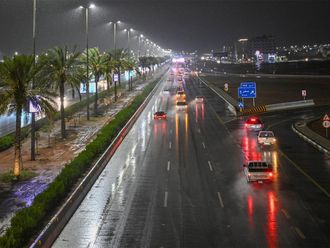
Makkah
Mansour Al Amer swipes a card to reveal a narrow sleep pod, reminiscent of Japan’s famed capsule hotels. But this pod is in Saudi Arabia, where the Haj begins on Sunday.
The kingdom has plans to introduce capsule rooms in the western city of Mina in the coming days, as an estimated two million Muslim faithful gather for the six-day Haj, one of the five pillars of Islam.
The free nap pods are part of new measures Saudi Arabia is rolling out this year in a bid to modernise Haj.
The government has also introduced apps for on-the-spot translation and emergency medical care.
Al Amer is the head of a Saudi charity, the Haji and Mutamer Gift Charitable Association, which is offering between 18 and 24 capsule for pilgrims to nap in for free in the coming days.
Each fibreglass pod — less than three metres long and just over one metre high — features a mattress, clean sheets, air conditioning and a large, well-lit mirror.
The pods can be lined up horizontally or stacked vertically to save on space.
“We are always thinking about pilgrims and how to make them more comfortable during the rituals of Haj,” Amer told AFP.
The nap pods provide a solution for pilgrims of limited means who cannot afford to book hotels on site but need a quick rest during Haj.
Each napper will have three hours of access to the pods, which are imported from Japan at cost of around $1,114 (Dh4088.4) each.
When the pilgrim wakes for prayer time workers will sterilise the pod before handing it over to the next pilgrim.
“The idea already exists globally, in Japan for example, and in several cities across the world,” Al Amer said.
“We believe it’s extremely well-suited for crowded places in our holy sites and in Makkah.”
But for Haj, which takes pilgrims across Makkah and Mina, the pods were also inspired by the rising popularity of car- and bike-sharing.
“The capsules work through a share economy, like bicycles that you can rent for an hour and then leave for someone else,” said Al Amer.
A trial run of 12 pods earlier this year was, he said, a success. Al Amer estimates 60 people used each pod every day during Ramadan.
The Haj presents the Saudi authorities with major logistical challenges, as Islam is currently the world’s fastest-growing religion, according to the Pew research centre.
Providing accommodation for two million pilgrims is no small feat, with travellers staying in everything from five-star hotels to tents pitched in empty lots.
Saudi authorities are pushing a “smart Haj” initiative to meet with the growing demands of Haj, which coincide with the kingdom’s unprecedented modernisation drive.












